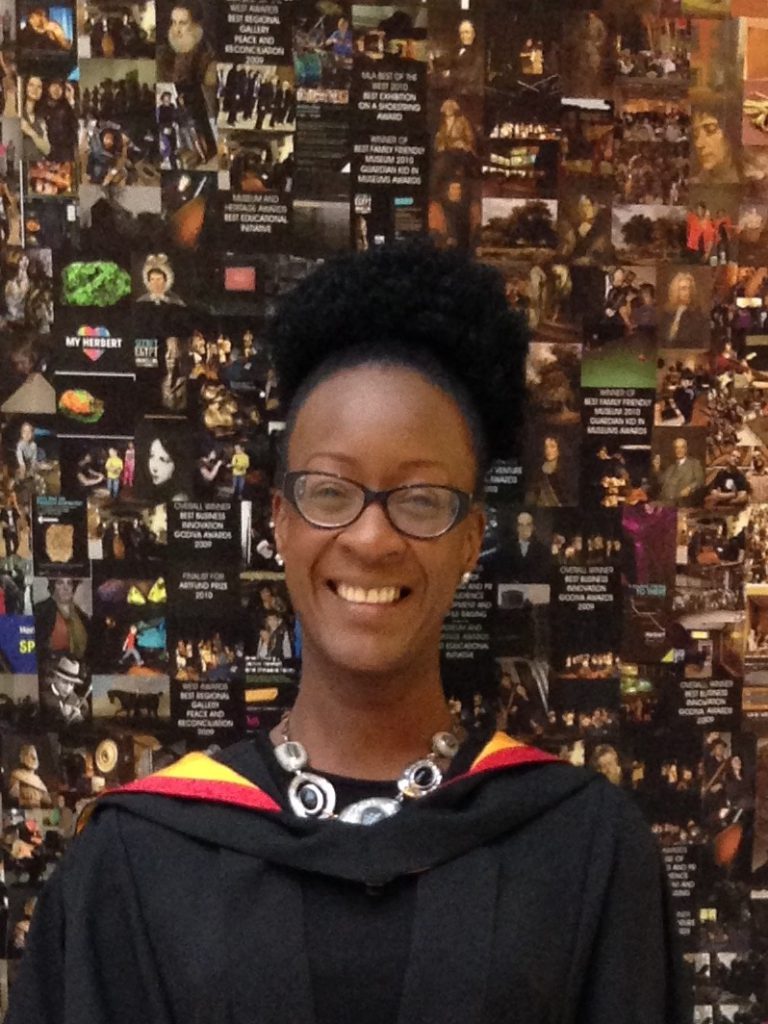by Yvette Brown, PhD candidate in the Centre for Agroecology, Water and Resilience (CAWR).

My name is Yvette Brown, I work as a Senior Lecturer in Mental Health Nursing at the University of Worcester. I am also a PhD candidate in the Centre for Agroecology, Water and Resilience. A few weeks ago, I achieved a milestone, I submitted my PhD thesis: Black men, Psychosis and Oppression: What do we learn when we listen to Black men’s voice?
I started my PhD with two motivations in mind. Firstly, it was an opportunity to delve into a subject matter that had held my interest and attention during my practice as a mental health nurse who observed the challenges and inequity experienced by Black men within mental health services. In the 1990’s, as a student nurse, it was common knowledge that there was a tendency for Black men to be overrepresented in mental health services in comparison to White men, disproportionately detained under the Mental Health Act, placed in more secure settings where the doors were locked and their movements restricted and subjected to longer stays in hospital. Indeed, contact with mental health services identified in mental health reviews were contributing to the death of Black men. As a practitioner, I was aware of the report into the death of Orville Blackwood, titled ‘Big, Black and Dangerous.’ I recognised how the description presented in the report of how mental health practitioners spoke about Black men in their care. What I did not anticipate was the longevity of such behaviours and that in 2020 we would still need to be expressing concern about Black men and their relationship with mental health services.
Secondly, as a lecturer, I was mindful that there was a need to examine and make sense of these persistent patterns of inequalities. It became apparent that despite ongoing debates about Black men and mental health and their experiences of mental health services, what was missing was studies that set out to focus attention on the inclusion of Black men’s voices. My research journey began with wanting to ‘make a difference’, to explore Black men’s everyday experiences of living with a mental health diagnosis, their access and routes into care, their experiences of services through a framework that aimed to consider how the experiences related to the concept oppression.
My doctoral research as a journey of learning and development
Key learning from carrying out my doctoral research is how as researchers we connect to our research and are also affected by the research we do. I was not prepared for the emotional labour I encountered listening to the stories told to me by the Black men in my study about how issues such as race, masculinity, powerlessness and violence were part of their everyday lives. As a Black woman, being involved in research that focused attention on the experiences of Black men created an additional dynamic. I saw myself as an ‘insider,’ but also recognised my position as an outsider; a researcher, lecturer who had worked within the very system that rendered the men powerless.
For me what was important was for my work to make a difference. It offers a framework for ‘change’ through a model of oppression informed by the experiences of Black men who participated. Using an approach that was qualitative with an ethnographical dimension led to spending time with the men in a community based mental health service. Here, I immersed myself in the field and spent time listening to the men’s stories. These stories were challenging as they captured the men’s experiences of powerlessness, domination, violence and `distress. However, they were also hopeful in terms of how the men also engaged in acts of resistance. My doctoral research is something personal, it tells me something about the world me and the men inhabit as Black people. For example, in a recent conversation with my nephew, I asked him how he was getting on at college. He replied that a tutor came to speak with him and described his behaviour in a group discussion as a ‘bit aggressive’. For me, this was a reminder of the racialisation described to me by the men in my study and the literature underpinning it.
I immediately felt a sense of anxiety for my nephew and felt it imperative that we talk about my work and explain how the process of racialisation works. I shared how he is not immune and how it wasn’t just relevant to Black men who were diagnosed with a mental illness.
Reaching the end of my journey
The final stages of writing up of my thesis coincided with the onset of the COVID-19 pandemic, the racial tension and unrest that surfaced around BAME deaths and the global protest following the killing of George Floyd. I saw the connections to my study and felt emotional about the uphill struggle Black communities continue to face. Despite the hurt, anger and frustration I felt, seeing the protesters march across the globe also gave me a sense of hope. Whilst I have not quite completed my journey and await my viva early next year. I would like to offer some words of wisdom to prospective PhD students or PhD students that are already on this journey.
Just as the thesis is evolving and taking shape, so are you. Go with it…
Get used to receiving feedback and feeling a sense of exposure and vulnerability that makes you feel like you are unable do it and that you will not get there. These are feelings and do not reflect your ability and your strengths.
Make sure that when you are feeling uncertain or anxious about your work you have people around you that you can be honest with, who are open to listening, but also understand the complex dynamics that can occur when conducting ‘insider-outsider’ research. This may mean speaking with other students, with colleagues or someone who has been in your situation.
As a Black woman, I am aware that I am already ‘othered’ and face more scrutiny than may White peers; so do your best not to ‘other’ yourself.
It’s your study, not your supervisors and there comes a time when you become the expert and will need to take control (you’ll hear others also say this to you, it’s true)
Celebrate the small wins




Comments are disabled